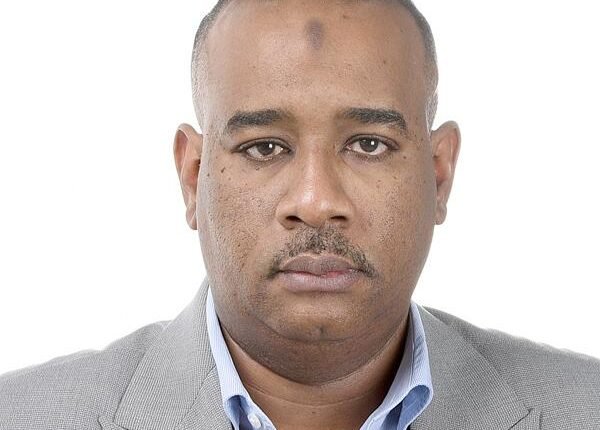NGOs and the Espionage Phobia

Muhannad Awad Mahmoud
The Sudanese scene is currently witnessing a heated debate about the activities of the French organisation Pro Mediation, which has stepped up its presence in Port Sudan for some time through training programmes for staff of the Ministry of Foreign Affairs. Its work has also extended to Darfur and Libya in the fields of capacity-building and conflict resolution. This organisation, established as a civilian framework for mediation and dialogue, became known for holding regional and international workshops and conferences—most recently the workshop in Kuala Lumpur that brought together a spectrum of Sudanese political forces with an Islamist background. Funded directly by the Japanese government, it concluded with a final communiqué emphasising support for Sudanese–Sudanese dialogue and affirming that Sudan’s stability is an integral part of regional stability.
Pro Mediation is not an anomaly. International organisations frequently find a foothold in conflict zones. However, Sudan in particular suffers from a phobia of espionage. Whenever an organisation shows signs of success, voices immediately rise accusing it of being an arm of the intelligence services—as though someone out there has a supernatural ability to detect signals even before the state’s own agencies do.
Espionage is an old art renewed by modern tools, and one of its most prominent features is the exploitation of organisations, laboratories, and research institutes. For example, some organisations have established health research labs in conflict areas under the pretext of combating epidemics, while the real aim was to collect biological samples to identify the genetic fingerprint of local populations. Others set up environmental labs under the guise of monitoring water quality in Africa, while actually mapping geological deposits of minerals and underground water. Or media training centres that organise workshops for youth in unstable countries, while in the background compiling databases of activists and their networks of communication. Such activities are inherently complex and not something the public can easily uncover. They require specialised agencies to follow up on them. It is simply unreasonable to suppose that someone sitting behind a phone screen has the tools to expose them with a rhetorical flourish.
The reality is that these methods are not easy to detect, even for professional agencies. They require close monitoring, field testing, and analysis of outputs. Can the secrets of such complex operations be revealed simply because someone on Facebook decides to put on conspiracy spectacles? That is a misleading oversimplification, and political naivety to boot.
The comic irony is that those attacking Pro Mediation ignore the fact that its funding comes from France, the European Union, and Japan—yet they jump straight to the claim that it is nothing more than a cover for French intelligence. So by that logic, the Japanese government, which funded the Kuala Lumpur workshop, is using its taxpayers’ money to bankroll a foreign intelligence agency! Is this official support, or an interest-free intelligence loan? And have Sudanese citizens suddenly become more knowledgeable than Japanese intelligence services about how their government’s money is spent? At this point, criticism turns into material for mockery rather than serious analysis.
The legitimate question remains: even if we were to assume, for the sake of argument, that French intelligence is behind this organisation, what would be the goal? To obtain secret information known only to the Sudanese themselves, or to rely on freely available UN reports online? To uncover the secrets of Sudan’s Ministry of Foreign Affairs in an open training hall with activities broadcast in the media? Or is the aim nothing more than symbolic political influence that could be achieved through far easier means? All plausible answers lead to the conclusion that the assumption is too simplistic to sustain an entire theory.
The problem lies not in Pro Mediation or others like it, but in our way of dealing with them. Instead of making constructive use of the activities of such organisations in the open and with the knowledge of our institutions, we drown in a clamour of unfounded accusations. If we sat down with cooler heads, we would find that their presence could be harnessed to build genuine capacity—especially if placed under the eye of Sudanese intelligence. But the recurring Sudanese behaviour—where those invited to the workshop see it as a great achievement, while those not invited see it as a looming threat—reflects not national awareness but regrettable opportunism. And the tables turn instantly: today’s critics become tomorrow’s admirers the moment they receive an invitation card stamped with the organisation’s seal.
Sudan is in dire need today of distinguishing between the real and the imaginary threat. Not every organisation is a secret operations room, and not every workshop is an intelligence trap. Criticism is necessary, but with a scientific mindset, not emotional zeal. Otherwise, we will remain stuck in a vicious circle of phobia, squandering opportunities to benefit from international initiatives while our rivals gain extra time and space. In the end, managing these files is not the job of an angry individual or a suspicious columnist, but the responsibility of a state that knows how to harness opportunities and contain risks. If we fail to learn this lesson, international organisations will remain caught between hammer and anvil, and our country will remain hostage to the espionage phobia.
Shortlink: https://sudanhorizon.com/?p=7425

